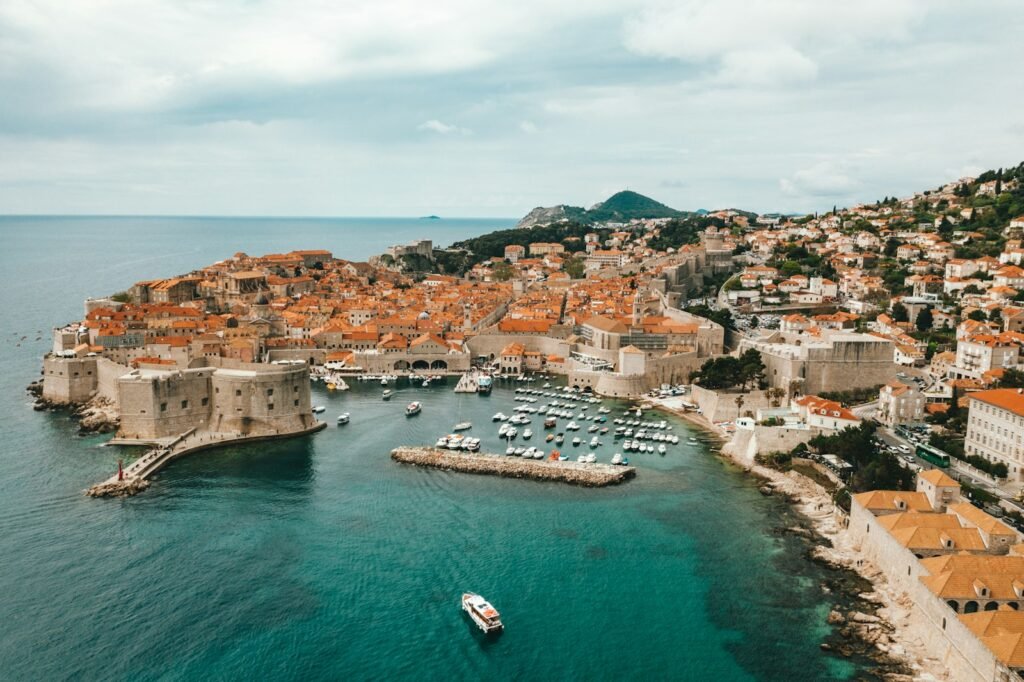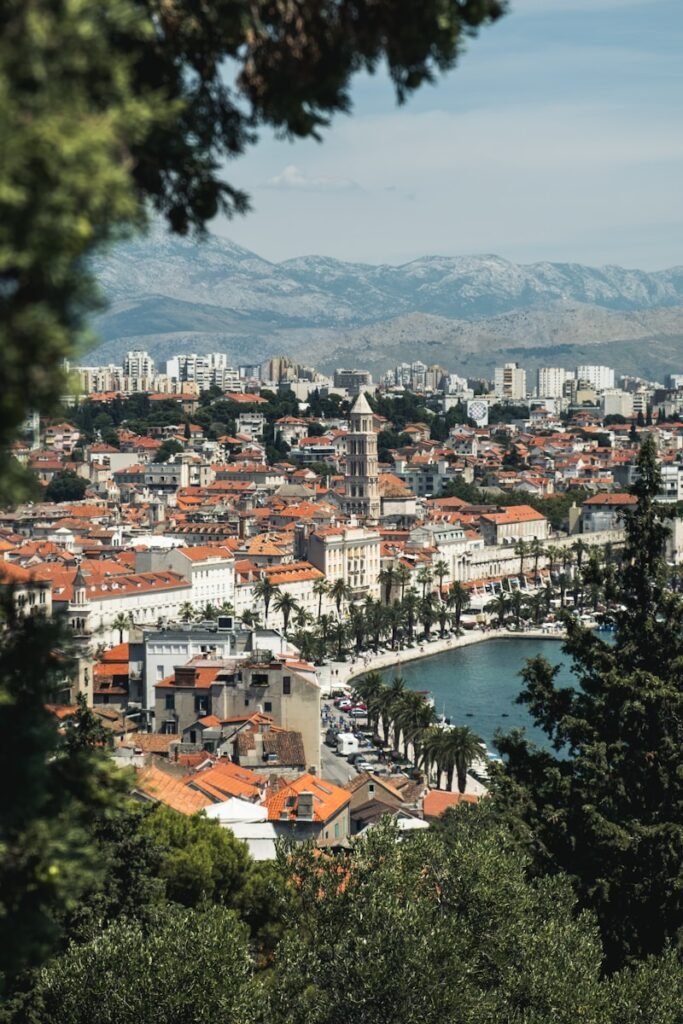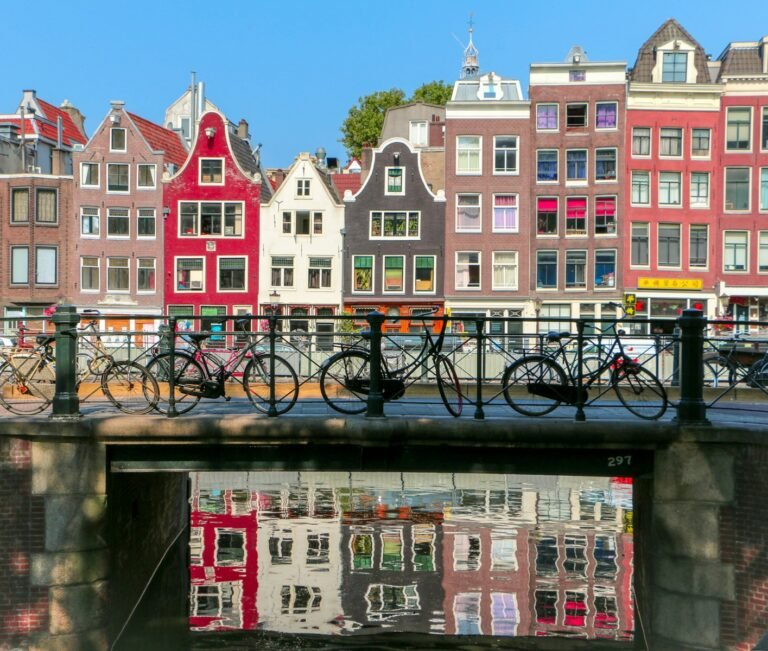Croatia Digital Nomad Visa: Everything You Need to Know in 2025
If you’ve ever dreamed of working remotely while enjoying crystal-clear waters, historic cities, and a laid-back Mediterranean lifestyle, Croatia might be your perfect next destination. With its digital nomad visa, Croatia has become one of the top spots for remote workers seeking a mix of work and adventure. But how exactly does the Croatia digital nomad visa work in 2025? Let’s dive into the details!
What is the Croatia Digital Nomad Visa?
The Croatia Digital Nomad Visa is a temporary residence permit that allows remote workers from non-EU countries to live and work in Croatia legally. Officially introduced in January 2021, this visa was created to attract freelancers, remote employees, and entrepreneurs who want to experience life in one of Europe’s most beautiful destinations while working remotely.
Unlike traditional work visas, the Croatia Digital Nomad Visa doesn’t allow you to work for Croatian companies or clients. Instead, it’s designed specifically for people who earn their income from companies based outside of Croatia. Whether you’re a freelancer, entrepreneur, or remote employee, this visa can give you the opportunity to enjoy Croatia’s stunning coastline, vibrant cities, and laid-back lifestyle without worrying about legal residency issues.
Albania also offers a Digital Nomad Visa if you want an option that is a little more affordable but gives you a lot of the same things Albania Digital Nomad Visa: Everything You Need to Know in 2025
Who is the Croatia Digital Nomad Visa for?
The visa is open to:
- Freelancers who work with international clients
- Remote employees working for companies outside of Croatia
- Entrepreneurs running their own businesses with clients based abroad
If you’re a remote worker who wants to explore Croatia while continuing your work from anywhere, this visa might be the perfect option for you.

Key Benefits of the Croatia Digital Nomad Visa
One of the reasons the Croatia Digital Nomad Visa has gained so much attention is because of its generous benefits for remote workers. Here’s what makes this visa so attractive:
Live in Croatia for up to 12 months
With this visa, you can live in Croatia for up to one year, giving you plenty of time to explore the country’s diverse landscapes, from stunning beaches to historic cities and lush national parks.
No Income Tax on Foreign Earnings
One of the biggest perks of the Croatia Digital Nomad Visa is that you’re exempt from paying Croatian income tax on your foreign earnings. This can be a huge financial advantage compared to other countries that require digital nomads to pay local taxes.
Access to Croatia’s Healthcare System
While living in Croatia, you’ll have access to the country’s healthcare system. You’ll need to have private health insurance as part of your visa application, but once you’re in Croatia, you can also apply for temporary access to the public healthcare system.
Family Members Can Join You
If you’re traveling with your partner or children, they can apply for temporary residence permits as your dependents. This makes the visa a great option for digital nomads who want to bring their families along for the adventure.
Why Croatia is Popular Among Digital Nomads
Croatia has quickly become one of Europe’s top digital nomad destinations thanks to its mix of natural beauty, affordable cost of living, and growing remote work community. Cities like Zagreb, Split, and Dubrovnik offer co-working spaces, fast internet, and a relaxed lifestyle that appeals to remote workers from around the world.
Whether you’re looking to work from a beachside café or a cozy coworking space in the city, Croatia offers a great balance between work and leisure.
Who is Eligible for the Croatia Digital Nomad Visa?
The Croatia Digital Nomad Visa is designed to attract remote workers from outside the European Union, offering them the chance to live in one of Europe’s most beautiful countries while working remotely. But who exactly qualifies for this visa?
Non-EU/EEA Citizens
The visa is only available to non-EU and non-EEA citizens. If you’re from the EU, you already have the right to live and work in Croatia without needing a special visa.
Proof of Remote Work
To qualify, you need to show that you’re working remotely. This could be as a freelancer with international clients, an employee working for a company registered outside Croatia, or as an entrepreneur running your own business based abroad. The key point is that your work must not involve providing services to Croatian companies or clients.
Minimum Income Requirement
One of the most important criteria is meeting the minimum income requirement. As of 2025, you need to prove a monthly income of at least €2,539 or have sufficient savings to cover your stay. This ensures that you’re financially independent and won’t be relying on the Croatian welfare system.
Health Insurance
You need to have private health insurance that covers you in Croatia for the entire duration of your stay. This is a crucial part of the application, as you’ll need to provide proof of coverage when you apply.
Clean Criminal Record
A clean criminal record is another requirement. You’ll need to provide a criminal background check from your home country or any other country where you’ve lived for the past few years.

Documents Needed
To apply for the Croatia Digital Nomad Visa, you’ll need to gather several documents to prove your eligibility:
Passport Copy
A clear copy of your passport, with at least six months of validity remaining.
Proof of Remote Work
This can include:
- Employment contracts with companies based outside Croatia
- Letters from clients if you’re a freelancer
- Proof of company ownership if you’re self-employed
Bank Statements
You’ll need to provide recent bank statements showing that you meet the income requirement or have enough savings to support yourself during your stay.
Health Insurance Certificate
A valid health insurance policy that covers your stay in Croatia.
Criminal Background Check
A document from your home country proving that you have no criminal record.
The application process might feel a bit overwhelming, but if you gather all your documents in advance, it can be surprisingly straightforward.
How to Apply for the Croatia Digital Nomad Visa
- Prepare Documents – Gather all required paperwork
- Submit Online Application via the Croatian Ministry of Interior website
- Visit the Local Police Station once in Croatia for biometrics
- Wait for Approval – Processing time is around 4-6 weeks
- Receive Residence Permit
Cost of the Croatia Digital Nomad Visa
| Fee Type | Cost (2025) |
|---|---|
| Application Fee | €55 – €80 |
| Residence Permit | €50 |
| Biometric Card | €45 |
| Total Estimated Cost | €150 – €200 |
Living in Croatia as a Digital Nomad
Best Cities for Digital Nomads
Croatia is quickly becoming one of Europe’s top destinations for digital nomads. Whether you’re into vibrant city life or laid-back coastal towns, there’s something for everyone. The mix of stunning landscapes, friendly locals, and growing digital nomad community makes it an exciting place to spend a few months or even a whole year.
Choosing the right city can really shape your experience in Croatia. Each city has its own vibe, so it depends on what kind of lifestyle you’re looking for.
Zagreb – Urban lifestyle with coworking spaces
If you’re into city life, Zagreb is the place to be. The capital has a growing startup scene, plenty of coworking spaces, and a great café culture. It’s easy to meet other remote workers here, and the city feels super safe and welcoming. The winters can be a bit cold, but the cost of living is more affordable compared to Western Europe.
Split – Coastal city with beach vibes
Split is perfect if you want a mix of work and beach life. The city is right on the Adriatic coast, with stunning views and plenty of outdoor cafes where you can set up your laptop. The summer months get busy with tourists, but if you’re staying long-term, you’ll quickly find the quieter spots where locals hang out.
Dubrovnik – Beautiful but expensive
Dubrovnik is one of Croatia’s most famous cities, especially if you’re into history and scenic views. It’s definitely one of the more expensive places to live, especially during the tourist season, but if you’re looking for a postcard-perfect backdrop while you work, it’s hard to beat. The digital nomad community here is smaller, but growing.
Zadar – Affordable coastal town
Zadar is a bit more off the beaten path, making it one of the more affordable coastal cities. It’s got a relaxed atmosphere, great sunsets, and a few coworking spaces. If you’re looking for a quieter lifestyle without sacrificing the beach, Zadar is a solid choice.
Cost of Living
| Expense | Monthly Cost (€) |
| Rent | 500 – 1,000 |
| Food | 300 – 500 |
| Coworking Space | 150 – 300 |
| Transportation | 50 – 100 |
| Total | 1,000 – 2,000 |
Pros and Cons of the Croatia Digital Nomad Visa
Croatia has become an increasingly popular destination for digital nomads, offering a mix of breathtaking landscapes, a laid-back Mediterranean lifestyle, and a growing remote work community. Before diving into the application process, it’s important to weigh the pros and cons to make an informed decision. Here’s a breakdown of what you can expect if you’re considering the Croatia Digital Nomad Visa.
Pros of the Croatia Digital Nomad Visa
1. Tax-Free Income
One of the standout benefits of the Croatia Digital Nomad Visa is the tax-free income for remote workers. This means that if you’re a non-EU citizen and you’re earning money from sources outside of Croatia, you won’t need to pay Croatian income tax on that income. This can be a massive advantage for those looking to maximize their earnings while enjoying life in a beautiful country.
2. Beautiful Scenery and Mediterranean Climate
Croatia is known for its stunning coastlines, crystal-clear waters, and picturesque old towns. Whether you’re working in bustling cities like Zagreb or relaxing by the Adriatic Sea in places like Split or Zadar, the country’s beauty is hard to beat. The Mediterranean climate, with long summers and mild winters, also makes it an attractive destination year-round. It’s easy to balance work and leisure with such a welcoming environment.
3. Growing Digital Nomad Community
Croatia has seen a significant rise in digital nomads in recent years, with many nomads choosing to settle in cities like Split, Dubrovnik, and Zagreb. The growing community offers plenty of networking opportunities, meetups, and events that allow you to connect with like-minded people. Whether you’re looking to collaborate, share experiences, or just make some new friends, Croatia’s digital nomad scene is quickly becoming one of the best in Europe.
4. Affordable Living Compared to Western Europe
When compared to other European countries, Croatia remains relatively affordable. While places like Dubrovnik can be pricier, the cost of living in cities like Split or Zadar is much lower than in Western Europe. Rent, food, and public transportation are all generally more affordable, allowing you to stretch your budget further while living in a desirable location.

Cons of the Croatia Digital Nomad Visa
1. Limited Duration (Maximum 12 Months)
The Croatia Digital Nomad Visa has a limited duration, with remote workers allowed to stay for a maximum of 12 months. While this can be ideal for those looking for a short-term stay, it may not be the best option if you’re looking for a more permanent base. That said, after the initial 12-month period, it’s possible to apply for an extension, though it’s not guaranteed.
2. Bureaucratic Application Process
Like many visa processes, the application for the Croatia Digital Nomad Visa can be a bit bureaucratic. While it is possible to apply online, there are certain documentation requirements that can slow down the process. Expect to provide proof of income, health insurance, and other supporting materials to prove that you’re able to support yourself during your time in Croatia. The process may not be as smooth as some might hope, so it’s important to be patient and organized when applying.
3. Some Cities Can Be Expensive (Like Dubrovnik)
While Croatia offers affordability compared to Western Europe, some cities, particularly Dubrovnik, can be on the expensive side. The city’s popularity as a tourist destination has driven up prices for accommodation and other living costs, which can be a challenge for digital nomads on a tighter budget. If you’re looking to make the most of your budget, you may want to consider other cities or smaller towns outside the tourist-heavy areas.
What It Means for Digital Nomads in 2025
Croatia’s digital nomad visa is an exciting option for remote workers seeking a mix of work and adventure in a stunning setting. With a relatively easy application process, affordable living in most areas, and access to a growing digital nomad community, Croatia has solidified its position as a top choice for remote workers in Europe.
However, the short duration of the visa and potential bureaucratic hurdles should be kept in mind. If you’re okay with the visa’s limitations and are looking for a temporary place to work remotely while enjoying life in one of Europe’s most beautiful countries, the Croatia Digital Nomad Visa might be just what you’re looking for.
If you’re considering the move to Croatia in 2025, start preparing your application early, as the visa process can take some time. It could be the perfect opportunity to embrace the digital nomad lifestyle and explore a vibrant and welcoming destination in Europe.
Another alternative country to consider is Digital Nomad Visa Hungary: Everything You Need to Know in 2025







